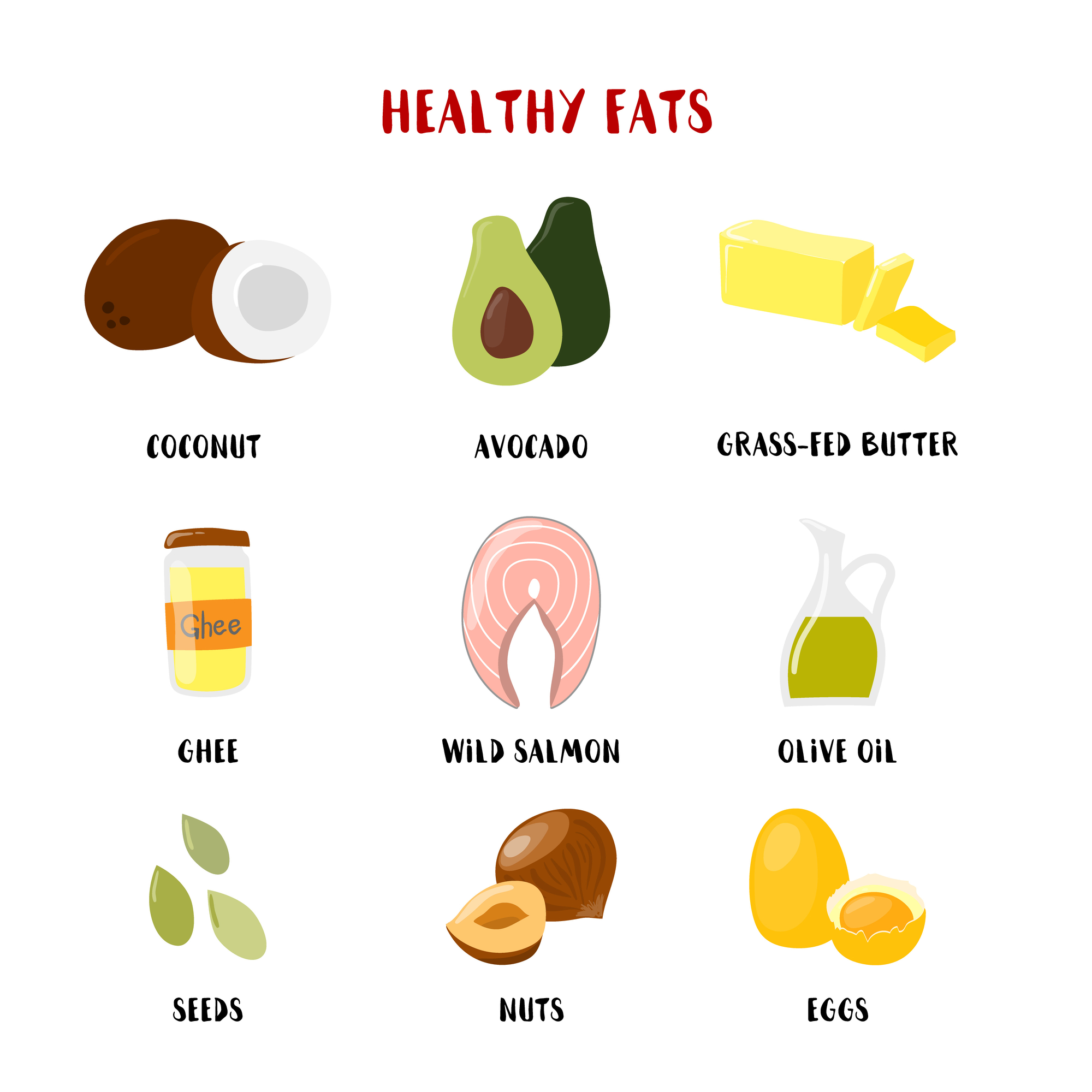 The foods you choose each day have a direct impact on how you feel, your energy levels, and even how well you sleep. With so many diets and food trends, the key is to focus on balance and personalization.
The foods you choose each day have a direct impact on how you feel, your energy levels, and even how well you sleep. With so many diets and food trends, the key is to focus on balance and personalization.
The right foods for your health and lifestyle are the ones that nourish your body, fit into your daily routine, and leave you feeling better and more energetic.
The Foundation: Carbohydrates, Proteins, and Fats
Carbohydrates, proteins, and fats are the three main nutrients your body relies on for energy and repair. Choosing the right sources makes a big difference.
- Healthy carbohydrates Vegetables and fruits are the healthiest carbs you can eat. Chose ones that you enjoy and eat at least twice as many veggies as fruits. Other good carbs include brown rice, potatoes, oats, quinoa, sweet potatoes, and beans.
- Desserts, white flour, white rice, sugar, and concentrated fruit juices can spike one’s blood sugar and lead to energy crashes. The whole-food carbs above can provide good fiber and steady energy to support digestion and health.
- Healthy proteins such as salmon and other fish, meat, chicken, turkey, eggs, natural cheeses, and Greek yogurt, help to build muscle, keep you full longer, and stabilize blood sugar.
- Healthy fats like avocado, olive oil, coconut oil, pumpkin seeds, sunflower seeds, and all types of nuts, are essential for brain health and hormone balance.
Adding these foods to your meals, one at a time, or eating them separately, can help you notice how each affects your energy and mood. A food journal is a useful tool to track which foods leave you feeling satisfied and which may cause adverse effects.
Diet and Sleep: Calcium and Magnesium
What you eat can also affect your sleep. Calcium helps the brain produce melatonin, the hormone that regulates sleep, while magnesium calms the nervous system and supports deeper rest. Foods like spinach, broccoli, pumpkin seeds, sunflower seeds, almonds, yogurt, and cheese are excellent sources. (Stick to the veggies and seeds if you are dairy intolerant).
To see what works best for you, introduce some of the above mineral-rich foods, one at a time, and record how it impacts your sleep in a journal. Sleep mineral supplements can also be used. For these, its best to stick to a 2 to 1 ratio, meaning it contains twice as much calcium as magnesium in the supplement. Vitamin D and zinc are also good minerals for improving sleep.
Matching Your Diet to Your Lifestyle
Your daily routine often determines how easy it is to eat well. For those with busy lifestyles, portable whole-food snacks can prevent eating fast foods and having energy crashes. Good options include a banana with almond butter, apple slices with cheese, carrot sticks with hummus, or a handful of cashews or almonds. These balance protein, fiber, and healthy fats to keep the energy steady.
Foods That Help or Hurt Energy
Everyone’s body responds differently to foods, which is why journaling is so valuable. Many people feel energized with colorful fruits and vegetables, lean proteins, and slow-digesting carbs like oats or brown rice. In contrast, sugary drinks, fried fast food, bakery items, and too much caffeine or alcohol often leave people sluggish or restless.
Putting It All Together
The best diet isn’t about strict rules but about learning which foods truly work for you. By balancing carbohydrates, proteins, and fats, eating sleep-supportive minerals, keeping whole-food snacks on hand, and limiting energy-draining foods, you can design a way of eating that fits your lifestyle and helps you achieve the greatest health possible!
This health news is shared with you by Nutrition Breakthroughs, maker of the effective natural sleep aid Sleep Minerals II, and the natural solution for joint relief, allergies, pain relief and increased energy, Joints and More.
***** Wendy R. of Honolulu, Hawaii says: “My friends know that I’ve had chronic insomnia for a long time. Surprisingly, I received the Sleep Minerals II and began taking it and found this thing really works. In the past if I ever got a good night’s sleep I’d say ‘I slept like a baby’, but that’s the wrong comparison. Those little guys get up every two hours. I am actually beginning to sleep like an adult — a much-rested adult.”
References
- National Institutes of Health, Office of Dietary Supplements. Calcium – Fact Sheet for Health Professionals. Updated March 24, 2022. https://ods.od.nih.gov/factsheets/Calcium-HealthProfessional/
- National Institutes of Health, Office of Dietary Supplements. Magnesium – Fact Sheet for Health Professionals. Updated March 24, 2022. https://ods.od.nih.gov/factsheets/Magnesium-HealthProfessional/
- Harvard T.H. Chan School of Public Health. The Nutrition Source: Healthy Snacks. 2021. https://www.hsph.harvard.edu/nutritionsource/healthy-snacks/
- Sleep Foundation. Nutrition and Sleep: How Diet Affects Rest. Updated June 24, 2022. https://www.sleepfoundation.org/nutrition




